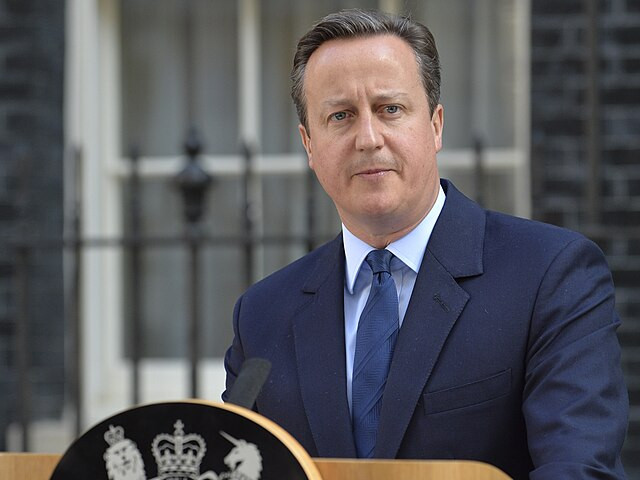The recent re-entry of former UK Prime Minister David Cameron into the British political arena, particularly as the new Foreign Secretary under Prime Minister Rishi Sunak's government, has ignited a flurry of speculation and analysis, especially concerning the potential ramifications for the UK's Middle Eastern policies.
Cameron, known for his firm stance on the Israel-Palestine conflict, once labeled the Gaza Strip as a "prison camp" and advocated for a two-state solution. However, he has also been a vocal supporter of Israel. His recent solidarity with Israel, amidst the ongoing conflict in Gaza, was emphatically expressed on social media. This came at a time when Israel announced a comprehensive blockade on Gaza following an attack by the Palestinian group Hamas.
His alignment with Israel is not new. During his tenure from 2010 to 2016, Cameron was often critical of Israel's settlements in the occupied West Bank, yet his administration refrained from any substantial policy shift, particularly during the 2014 Gaza conflict. Notably, Cameron's administration was accused of being pro-Israel, with Israeli media outlets like Haaretz labeling him as the most pro-Israeli British PM ever.
Cameron's approach to the Middle East extends beyond the Israel-Palestine issue. His tenure was marked by decisive military interventions in the region, particularly in Libya and against ISIL in Iraq and Syria. His inclination towards using Britain's military might in the Middle East has often been a subject of controversy.
However, Cameron's return to frontline politics as the Foreign Secretary could signal a potential shift in the UK's Middle Eastern policy. Ben Whitham, a professor at SOAS, suggests that while Cameron might adopt a conciliatory tone, he is unlikely to favor Palestinian interests significantly. Whitham also highlights Cameron's strong connections with strategic economic partners in the Middle East, including Saudi Arabia, which could influence the UK's foreign policy post-Brexit.
Cameron's appointment comes in the backdrop of significant internal political shifts within the UK. He replaced James Cleverly after Sunak dismissed Home Secretary Suella Braverman, who had been embroiled in controversy over her remarks on police leniency towards pro-Palestinian protesters. This cabinet reshuffle, part of Sunak's strategy to stabilize his government, places Cameron in a pivotal role concerning the UK's foreign policy.
Cameron's Middle Eastern policy, particularly his stance on military interventions, has often been compared to that of former US President Barack Obama. His approach towards groups labeled as "terrorists" and his support for military actions, including drone strikes, indicate his preference for a robust military approach in the region.
The implications of Cameron's return are yet to be fully understood. However, it is clear that his track record and relationships within the Middle East will play a significant role in shaping the UK's foreign policy in this volatile and strategically crucial region. His return might not herald a drastic shift in policy but could reinforce the UK's existing strategic alliances and its stance on key issues like the Israel-Palestine conflict.




